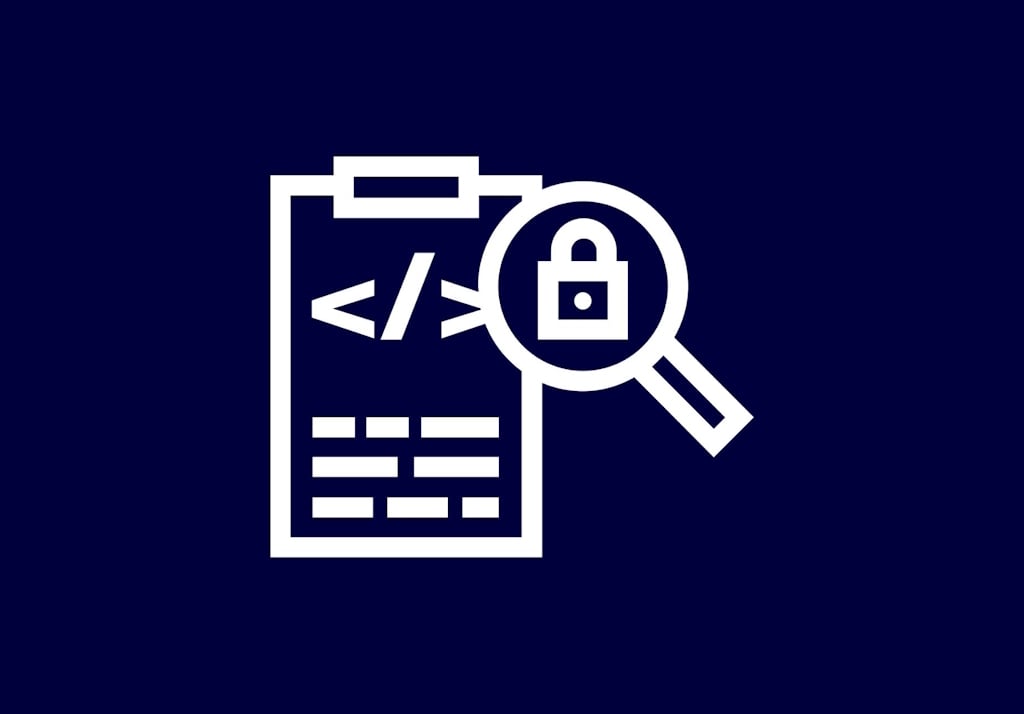


Proactive security for your company
Offensive Security: We uncover vulnerabilities in your IT infrastructure before they can be exploited.
Why Offensive Security?
To effectively counter increasingly sophisticated cyber threats, companies need to move from a reactive to a proactive security strategy. Act now to protect your business.
The added value for your company
Proactive protection: our services at a glance
Our Offensive Security Solutions cover a wide range of security checks that are specifically tailored to the needs of your company and provide comprehensive insights into possible security gaps by simulating real attacks.
Identify
We identify potential vulnerabilities in your IT infrastructure before attackers can exploit them. This proactive approach not only protects your sensitive data, but also your reputation and the trust of your customers.
Penetration Tests
Our ethical hackers simulate targeted attacks on your systems to identify vulnerabilities in networks, applications and infrastructures.
We use Penetration Tests to simulate targeted attacks on your systems in order to identify vulnerabilities that could be exploited by malicious actors. This involves testing networks, infrastructure, applications and other components to uncover security gaps before any damage is done.
Why is this important?
We use Penetration Tests to identify and eliminate vulnerabilities that could lead to data breaches, protecting both personal data and the company's reputation. The tests ensure compliance with standards such as GDPR, PCI-DSS, and ISO 27001 and prevent costly incidents such as downtime and data loss. Last but not least, they ensure the trust of your customers in an increasingly security-focused market.
-
Web application
-
Internal / External
-
Cloud
-
OT
-
Mobile
Web application Penetration Test
Our web application testing identifies security vulnerabilities in your online-accessible platforms that could be exploited by attackers to gain unauthorized access or steal sensitive data. For your company, this means improved protection of digital customer interfaces and minimization of the risk of data breaches that could lead to reputational damage and regulatory sanctions.
Internal / External Penetration Test
We use internal and external network tests to evaluate the security of your IT infrastructure from different perspectives. External tests simulate attacks from outside your network, while internal tests assess potential threats from insiders or compromised devices within your network.
Cloud Penetration Test
Our cloud Penetration Tests assess the security of your cloud environments and identify potential vulnerabilities in your cloud configuration, access controls and data processing. These tests help to meet compliance requirements and increase confidence in your cloud strategy.
OT Penetration Test
Our OT Penetration Tests simulate cyber attacks on operational technology (OT) systems to identify vulnerabilities and security gaps. OT systems monitor and control industrial processes in areas such as energy, water treatment plants and other critical infrastructure environments. A successful attack on OT systems can have serious consequences. That is why we protect your OT systems against attacks, support you in complying with regulatory requirements and improve your ability to respond to security incidents.
Mobile Application Penetration Test
Mobile applications tend to change frequently. This is why it is so important to analyze the security of mobile applications in good time. Our mobile penetration tests check how vulnerable the security of your mobile applications is. We identify weaknesses and point out common errors. This allows us to identify areas where the security of your mobile applications can be further improved.
Phishing Tests
Phishing Tests are simulated cyberattacks that evaluate how well your employees can recognize and respond to phishing attempts.
Why is this important?
Regular phishing tests strengthen security awareness in your company. The tests include sending fake phishing emails that mimic real attacker tactics such as deceptive links and spoofed sender addresses. They measure your employees' ability to identify suspicious emails and evaluate the effectiveness of your cybersecurity training programs.

Vishing Tests
Vishing Tests are simulated cyberattacks designed to assess how well your employees can recognize and respond to vishing attempts. Vishing is phishing via voice (telephone).
Why is this important?
By conducting regular vishing tests, your company can strengthen its defenses against vishing attacks and raise employees' security awareness. More and more attackers are using targeted phishing via phone calls, pretending to be a support team or a security company. It is important that your company is prepared for these new threats.

Physical Intrusion Tests
With physical intrusion tests, we test the physical security of your company and the awareness of your employees. In the tests, intruders attempt to bypass physical security measures such as cameras, badge systems, locks, etc. and use social engineering to gain access to buildings.
Why is this important?
Physical security is an often overlooked but critical aspect of a comprehensive cybersecurity strategy. If physical security is inadequate, it can be easy for malicious individuals to shadow your employees and, for example, take photos of the offices or take laptops and documents lying around. We use physical intrusion tests to find weaknesses in your company's physical security so that you can prevent such attacks.

Assume Breach Simulation
Attack simulations assume that an attacker already has access to your systems and test how well your company can detect, contain and remedy such an intrusion.
Why is this important?
This proactive approach helps you identify and address weaknesses in your detection and response capabilities before a real attack occurs. This approach provides a realistic assessment of your organization's resilience and supports strategic decisions to improve your security posture.

Red Teaming
A Red Team is a group that assumes the role of the attackers and assesses the security status from this perspective. A Red Team is therefore a hacking simulation that aims to assess and train your company's defenses to withstand a real attack.
Why is this important?
Red teaming exercises simulate complex, targeted attacks on your organization to test the effectiveness of your security defenses and response capabilities. These comprehensive exercises combine various attack techniques to create realistic threat scenarios and put your defenses to the test. The Red Team service is particularly suitable for medium-sized and large companies that want to test and improve their cyber security defenses. Swiss Post Cybersecurity has both a Red Team and a Blue Team. The "battle" between the teams provides us with valuable insights for the defense of your company.

Secure Code Review
Secure code reviews are comprehensive analyses of the source code of your applications to identify security vulnerabilities. Depending on the size of the code, the review can be carried out either completely manually or with the help of an automatic source code scanner.
Why is this important?
This proactive approach helps to identify and fix vulnerabilities early in the code development cycle, reducing the cost of later fixes and improving the overall security of your application. Additionally, testing supports compliance with industry standards (e.g. PCI-DSS, HIPAA). Regular code reviews also increase developers' knowledge of security topics, allowing them to write better quality code with fewer risks of vulnerabilities.

Configuration Review
Configuration checks evaluate the configuration and resilience of your operating systems or software. They are based on the criteria of the Center for Internet Security (CIS). We can also use other standards on request.
Why is this important?
The configuration check is crucial for the security, stability and efficiency of your IT systems. It detects and fixes misconfigurations, ensures compliance with industry standards such as GDPR, HIPAA or PCI-DSS and increases system performance. Regular checks identify potential problems at an early stage and support change management through correct documentation and testing of changes.

FAQ / Best practices
Here you will find answers to frequently asked questions about Offensive Security.
What is Offensive Security and why is it important?
Offensive Security includes proactive security measures such as penetration testing, red teaming and vulnerability analysis to identify security gaps before attackers can exploit them. Offensive Security is important to minimize risks, meet compliance requirements and strengthen a company's resilience.
Which sectors benefit particularly from Offensive Security?
Industries with high security requirements such as the financial sector, the public sector, energy and critical infrastructure as well as medicine and research benefit in particular, as they are often the target of cyber attacks and have to meet strict compliance requirements.
How is confidentiality guaranteed during Offensive Security tests?
All tests are carried out in strict compliance with confidentiality agreements. Sensitive data is protected and the results are only shared with authorized persons.
How does Swiss Post Cybersecurity limit to the maximum the potential impacts tests and simulations could have on ongoing business processes?
We carefully plan and coordinate all tests with your IT team to avoid disruptions. Our experts work with state-of-the-art tools and techniques to minimize the impact on your systems while delivering meaningful results.
How does offensive security differ from defensive security?
While defensive security aims to ward off attacks and protect systems, offensive security focuses on identifying and eliminating vulnerabilities through simulated attacks before real attackers can exploit them.
How often should penetration tests be carried out?
The frequency of penetration testing depends on various factors, including the size of your organization, the nature of your data and the regulatory requirements of your industry. As a best practice, we recommend conducting a comprehensive penetration test at least once a year. Additional testing should be considered if there are significant changes to your IT infrastructure or following the introduction of new applications.
Cyber Blog
On the Cyber Blog you will find the current insights, expert articles, and practical tips on the latest cyber threats and security solutions to enhance your company's digital security.
%20(2880%20x%201440%20px).png)
Free cybersecurity webinars: expand your knowledge and reduce risks

New Microsoft Advance Partner Certifications

Don't Judge a PNG by Its Header: PURELOGS Infostealer Analysis

Insights from the 39C3 Congress in Hamburg

Hacknowledge Lux becomes Swiss Post Cybersecurity Lux SA

Computerworld talked to Daniel Gerber at it-sa

Strenghten your cyber resilience with the Microsoft Envision Workshops

BruCON: Inspiring insight into the world of cybersecurity

Enhancing Physical Security in Investment Companies: A Comprehensive Approach - Part 2

